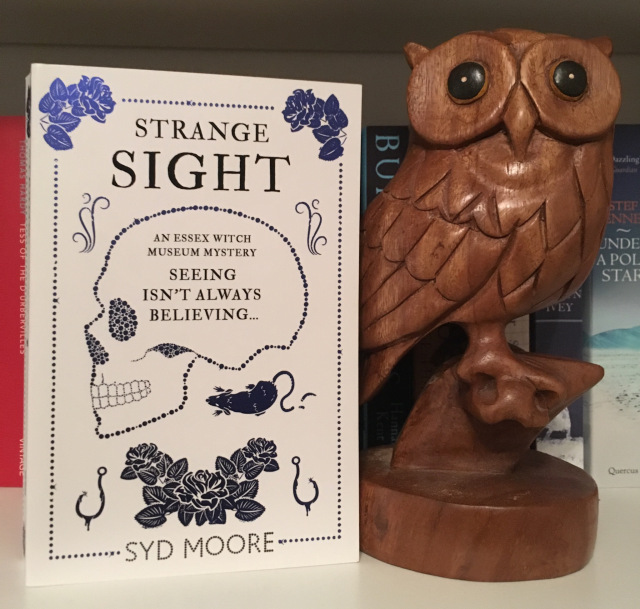
Favourite Quotes:
“See, anxiety doesn’t just stop. You can have nice moments, minutes where it shrinks, but it doesn’t leave. It lurks in the background like a shadow, like that important assignment you have to do but keep putting off or the dull ache that follows a three-day migraine. The best you can hope for is to contain it, make it as small as possible so it stops being intrusive. Am I coping? Yes, but it’s taking a monumental amount of effort to keep the dynamite inside my stomach from exploding”.
“Beauty comes from how you treat people and how you behave. But if a little lipstick make you smile, then you should wear it and forget what anyone else thinks”.
“Social Convention dictates that I must deny being pretty, but I am… pretty. It’s one of the only things I have that makes me feel normal. Of course, I pervert that normality by embracing my looks. <..> This is mine, one of the only things about me that I actually like. I own it. And Social Convention will have to pry it from my cold, dead hands before I ever give it up”.
Norah Dean lives with agoraphobia and obsessive compulsive disorder. She is homeschooled and spends most of her time at home with her loving mother. For her, even a walk to the car can cause a panic attack. Her illness might not be visible, and the media might make people believe that she doesn’t look “mentally ill”, but Norah is sick. And a new boy-next-door isn’t a cure.
But Norah’s chance encounter with the new neighbour is not something she can ignore. Luke is a sweet kid with an air of mystery around him and he seems to be interested in Norah. She is keen, too. And if she were a “normal” kid…
I’m sorry. I seem to be unable to write a decent summary for “Under Rose-Tainted Skies”. And I’m not too fond of the Goodreads summary either. It’s making it seem as though romance is the solution to mental health issues. It is NOT. And the book makes it abundantly clear. In fact, I see the Goodreads summary as a disservice to this amazing novel – it is not a “romantic” story. It’s more of a character study that features some romance.
And I can’t emphasise enough how important this book is. How it can help young people understand mental health and its impact on one’s everyday life. “Under Rose-Tainted Skies” is brutally honest, doesn’t beat around the bush or shy away from heavy topics (TW: self-harm). Norah’s daily struggles felt incredibly real – not least because the book is told from her point of view and a lot of it is her thought process. These kinds of introspective books are what the world needs in order to smash stereotypes about mental illnesses. Norah makes a reference at some point to one such stereotype – “People always seem to be expecting wide eyes and a kitchen knife dripping with blood”. Thing is, most people who suffer from mental health issues are not like that. Norah isn’t like that – she is a conventionally pretty girl who is an overachiever. However, the fact that her OCD and agoraphobia can’t be seen with a naked eye – just because she doesn’t “look mentally ill”, doesn’t mean that she isn’t struggling with them on a daily basis.
I cannot speak for people who suffer from OCD or agoraphobia. But I have been treated for depression and Generalised Anxiety Disorder in the past, and to this day I struggle with anxiety. Fortunately, I have more Good Days than Bad Days now, but, as Norah said, “anxiety doesn’t just stop. It lurks in the background like a shadow <…>, and the best you can hope for is to contain it, make it as small as possible so it stops being intrusive”. I was first diagnosed during my second year of University which is when I was first prescribed medication and CBT. They did help me get through exams, and little by little, I learned to somewhat cope with my anxiety. It has reared its ugly head again when I was in law school – a very stressful time for me, for many reasons. I did seek help again, but I wish I had done so months earlier. Years earlier, even.
Why didn’t I? Well, like many other millennials, I had fed into the narrative offered by the media that stigmatised mentally ill people as “weak”. Plus, I was an only child and was brought up to believe that you only do enough if you get the best grade, or get promoted. A lot of my anxiety struggles did have to do with my envrionment and background, and not to mention the lack of a support system. I was living 2,000 miles away from my family, my low moods and anxiety made me pull away from friends, and while I was in a relationship, it wasn’t the best one. Besides, relationships aren’t a cure to mental illness, as I’ve already pointed out. Unfortunately, the society where I currently am doesn’t buy that and most people believe that getting married and starting a family is all a woman can ever need. Not a helpful narrative, AT ALL.
So I do wish, as I’ve said, that I’ve gotten the help I needed earlier. The UK university that I was at had an excellent mental health center, and the counsellor had a daughter studying to be a lawyer, so she understood and was able to help. I believe that, if “Under Rose-Tainted Skies” had been released in 2009, I would’ve asked for help much earlier. And I genuinely believe that others like me would also have done so.
Everyone experiences mental illnesses differently. Perhaps you can relate to Norah’s experience, or maybe yours are vastly different. Whatever the case might be, DON’T SUFFER IN SILENCE. ASK FOR HELP. IT’S OK TO DO SO. Books like “Under Rose-Tainted Skies”, “Cracked Up to Be”, “Speak” – hell, even the classic “The Bell Jar” – aren’t just useful – they’re mandatory for everyone who wants to learn more about mental health, people’s experiences with it, or just needs someone to relate to. And if we get more books like that, I believe we can, slowly but surely, smash the stereotypes about mental health altogether and help more people get the help they need.
Well, this review has turned into a personal essay, hasn’t it? I’ll finish with this – buy/borrow “Under Rose-Tainted Skies” and educate yourself. You won’t regret it.
Recommendations:
You might like “Under Rose-Tainted Skies” if you liked:
“Cracked Up To Be” by Courtney Summers;
“The Bell Jar” by Sylvia Plath;
“Paper Butterflies” by Lisa Heathfield
Have you read “Under Rose-Tainted Skies”? Do you have favourite books that depict mental illness realistically and not just use it as a plot device? Drop me a comment and don’t forget to visit my Etsy charity shop before you go!





